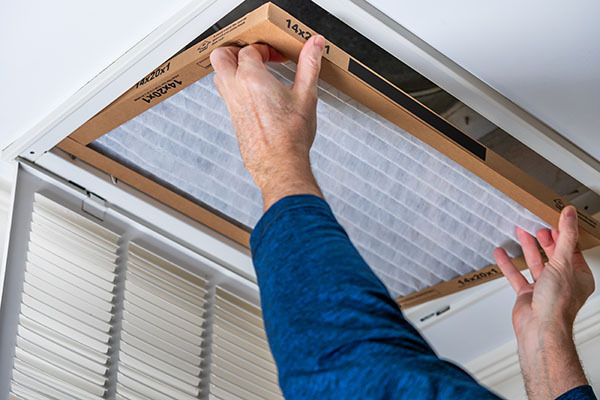
There are several environmental factors you should consider when choosing an air filter, such as:
- what contaminants are you attempting to remove
- how allergies and asthma (and other respiratory illnesses) affect occupants
- does the healthcare of your occupants have to be considered?
And that’s what we’ll do today: turn to details about MERV ratings — the elements that can (theoretically) make all the difference in your health and, even more, your energy bills.
This guide will explain MERV ratings, how they work, and why they matter. Then we’ll give tips on choosing the right filter with ratings from lower MERV 1 to 5 or MERV 8 filter with mid-range efficiency up to MERV 15 and up.
Plus, learn what range to choose that will suit your home. Read on!
Table of Contents
What is MERV?
MERV means “minimum efficiency reporting value,” a rating system used to classify the efficiency of air filters. It’s a number that represents how well the filter can remove particles from the air.
The MERV rating scale comes from ASHRAE (American Society of Heating, Refrigerating and Air-Conditioning Engineers). It measures how efficiently an air filter removes airborne particles such as pollen and dust mites from the air passing through it.
MERV Ratings
There are different types of MERV ratings:
MERV 1-5
These are low-efficiency filters designed for use in residential homes and offices. They remove large particles but miss smaller ones like pollen and mould spores.
MERV 6-16
These are mid-range efficiency filters that can remove some small particulates as well as larger ones. They’re suitable for residential and commercial use, but you may need to replace them more often than lower-rated filters if you have allergies or asthma.
MERV 17-20
These high-performance filters capture even smaller particles than mid-range ones — including pollen, mould spores, and dust mites — making them great for allergy sufferers or people with asthma who need a higher level of protection from indoor pollutants like these.
How to Choose a Filter Based on MERV
Generally speaking, the higher the MERV rating, the more efficient the filter will be at trapping smaller particles. However, it’s crucial to choose a filter with a MERV rating that is appropriate for your needs.
Choosing a filter with too high of a MERV rating may reduce the overall air quality in your home as it can cause your HVAC system to work less efficiently.
Here is a quick guide to help you choose the right MERV rating for your needs:
- If you have allergies or other respiratory problems, you’ll want to choose a filter with a MERV rating of at least 7.
- If you have no specific respiratory issues but want to improve the overall air quality in your home, a filter with a MERV rating of 5 or 6 should suffice.
- If you live in an area with a lot of dust or other particles in the air, you may want to consider a filter with a MERV 8 filter or 9.
- If you want the absolute best air quality possible, choose a filter with a MERV rating of 10 or 11.
However, remember that these filters can be pretty expensive and may reduce the efficiency of your HVAC system.
Once you’ve decided on the right MERV rating for your needs, check the manufacturer’s recommendations to ensure that your chosen filter will work with your HVAC system.
Final Thoughts
Understanding the different filter ratings can be confusing initially, but with some research, you can find the right filter for your home.















